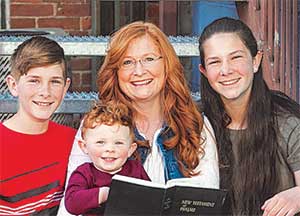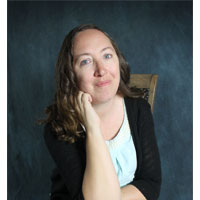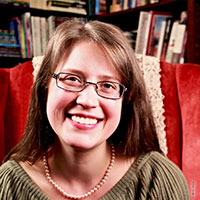February 12, 2025 – History and Geography through Literature


History and Geography through Literature
February 12, 2025
Deborah Wuehler
The Grand Adventure
Heather Vogler
The Heart of the Matter
Danika Cooley
Books for the Win!
Beth Mora
If You Came for a Visit to My Home

Mercy Every Minute
Deborah Wuehler, TOS Senior Editor
The Grand Adventure
I am not an expert in a literature-based learning style. But, I can say my children learned exponentially more through good literature than I could ever expose them to in real life. They learned science, history, geography, and strong moral character.
The books they have read have taken them on grand adventures through time, space, and Creation. In reading biographies, they have lived with missionaries abroad while facing dangers of many kinds. In historical fiction, they read about the living and the dead. In the classics, they have encountered inner and outer conflict to overcome. They have seen what it is to have courage and perseverance. They have read what evil does and have seen good win. The world and all its history and geography and anthropology and human emotion have been opened up to them through the literature that they read. Parents, make sure it is worthy literature! Don’t know where to start? Here are five life-giving book titles for every age and stage.
Besides all of that, they have learned new vocabulary, observed proper grammar, and increased their spelling capabilities just by reading good literature— whether that is in paper form, on an electronic device, or through an audio presentation.
Obviously, the best literature is the syntax, context, vocabulary, substance, and etymology of Scripture. Many good books will penetrate a reader’s mind, his perspective on life, or even move his feelings. But the Book containing the very words of the Most High God Himself will change the inner man of the heart and will impart what no man has words to teach. This is the best literature-based learning around.
“Be not conformed to this world: but be ye transformed by the renewing of your mind, that ye may prove what is that good, and acceptable, and perfect, will of God” (Romans 12:2).
God has given you everything you need to run this home education race. He is smiling at you and loves you just as much as He loves His own Son and will run with you to the finish line. You have been given the highest calling of all—leading your little ones to Him.
~Deborah
Five Ways History and Geography Can Be Fun, by Cole Austin
How to Use Historical Fiction in Every Subject, by Meredith Curtis
Life Lessons from Literature, by Jennifer Courtney
If you love this newsletter (or don’t!) please let us know. Email: dwuehler@theoldschoolhouse.com.
Are you looking to grow your home library? Do you need a second-semester curriculum refresh? Check out some new options in the “Literature and Curriculum” Resource Guide in the Winter 2025 issue of The Old Schoolhouse Magazine®. What will help you start off 2025 on the right foot?

Heather Vogler
The Heart of the Matter
Textbooks are boring—for most kids. Even though non-fiction books work for practical usages, such as how to make a knife, tie a knot, or whip up a fancy recipe, kids are craving a different approach when it comes to learning about history. Names, dates, and places get lost on the page when little to no context is presented, causing them to possibly fall behind in their reading comprehension skills.
The real problem, though, lies in the reality that if our kids are not gaining a strong grasp on history in their schooling, they will learn a version of history elsewhere—and it might not be according to our family’s worldview. Media, friends, and other outside influences can present a warped version of history that can shape the minds of our children without us even realizing it.
So, what can we do as homeschooling parents? We can teach our children history with conviction and purpose. One of the best ways to do this is to reach the heart through literature. Literature appeals to human emotion effectively. Good or bad. If we do not present quality literature to our children in their youth that encourages them to think about the whys of history, then the media (or other literature) will try to appeal to their emotions negatively.
Offering strong literature in our homeschools that shows the humanity of those who endured history reaches the hearts of children in a powerful way, leading to healthy family discussions. Authors throughout history used literature to get to the heart all of the time. To Kill a Mockingbird and Uncle Tom’s Cabin are prime examples. If we want our children to understand history and learn from it, using quality, thought-provoking literature is the best option!
Heather Vogler, her husband, and five children call the Blue Ridge Mountains of Virginia home where they homeschool and homestead. Heather has homeschooled her children from the beginning and enjoys an eclectic style of teaching. As a freelance writer she has been published in Focus on the Family Magazine, War Cry Magazine, and Brio Magazine. Heather holds a BA in Christian Ministries and currently writes at ThriftSchooling.com.

Danika Cooley
Books for the Win!
Is there anything better than cuddling up with your kids, reading great books? I think not. In fact, we loved homeschooling through literature. My kids and I spent many wonderful hours over the course of their twelve-year education reading aloud, reading silently, and exploring what they had learned.
We based our schedule on a four-year history cycle. Each week, we read a nonfiction book about a time period such as the Reformation, or a place such as ancient China. I added historical fiction, Christian biographies, other nonfiction about events or discoveries, and a novel from the time period. We usually went over a primary source document such as Martin Luther’s Ninety-Five Theses as well.
When you are teaching history and geography through literature, it helps to have a few additional resources on hand. I recommend investing in:
- A timeline journal for each child.
- An atlas or a giant wall map.
These will help your kids can keep track of important dates and see how events overlap. As you explore new areas of the world, they can locate them and explore where those areas are in relation to other places.
The key to really exploring history and geography through literature is to use a wide range of books. Be sure to spread out the learning so your children are not overwhelmed by the amount of reading they must do each week. If you plan too many books for a week, simply extend your mini-unit into the following week.
Is literature-based education fun? Yes. Do kids actually learn through literature? Again, yes. Our children learn a great deal about history and geography through story. They also innately learn proper grammar, storytelling skills, foundational writing skills, empathy, the importance of character, and more. As a veteran homeschool mom, I give literature-based learning five stars. Books for the win!
About the author
Danika Cooley is an award-winning children’s author who blogs about Bible books, crafts, activities, and snacks at Thinking Kids. Her books include Help Your Kids Learn and Love the Bible, Bible Investigators: Creation, and the Who What Why series, a line of Christian history for 7–11-year-olds. Grab your free three-week sample of her popular Bible Road Trip™ curriculum here.

Beth Mora
If You Came for a Visit to My Home
I love to learn and teach history and geography through great literature! I mean, I’m obsessed!
If you came to my home, you might see my children making papyrus, mummifying a chicken, and practicing hieroglyphics, all because we read The Golden Goblet.
If you came for a visit to my home, you might see my children dressed in Roman togas enjoying a Roman feast that they prepared themselves, all because they read The Bronze Bow.
If you came to my home for a visit, you might see my children making a miners’ village out of cardboard, including a rocker cradle and a painted river with glitter for gold, all because we read By the Great Horn Spoon.
If you came to my home for a visit, you might see my children race to build the transcontinental railroad out of popsicle sticks, all because we read The Building of the First Transcontinental Railroad.
If you came to my home for a visit, you wouldn’t have any trouble guessing what era or place on earth we were exploring through great literature. We read our way from the beginning of time to the modern day. We read stories from all over the world, immersing ourselves in their cultures and exploring their dress, customs, religions, and foods. Map work accompanied every book we read. Teaching history and geography through great literature has excellent educational dividends.
- Historical literature inspires us to see history as His (God’s) story! We see humanity that either did well honoring God or didn’t, and we discover the consequences of both.
- Historical literature gets remembered—facts and figures don’t.
- Historical literature inspires creative play. When what they read leaks into their playtime, you know they understand!
- Historical literature goes deep in content. Well-written stories have details that history books can’t cover.
Please come to my home for a visit. You might see me with my children sitting on my lap, side by side on the couch, or face to face at the kitchen table, with a book in hand where great thoughts and imaginations ignite, and history comes alive.
About the author
Beth Mora is a staff writer for The Old Schoolhouse® Magazine, LLC and lesson designer for www.Schoolhouseteachers.com. She is the creator/teacher-on-camera for Here to Help Learning’s Homeschool Writing Program Grades 1-6, and a homeschool conference and women’s events speaker. Meet up with Beth at Home To Home, one of her favorite places to encourage. Everything she does, whether laughable or heart-gripping, is done to honor her Lord and Savior, Jesus. God’s grace is the salve that has healed her own life and is what she offers liberally to others.
A division of The Old Schoolhouse®
SchoolhouseTeachers.com Corner
Did you know?
Every class is INCLUDED for ultimate members!
No limits.
Would you like to take a closer look at the contributions of African Americans in literature? African American Literature is an advanced language arts course that examines themes in African American works from the oral tradition to contemporary authors. High school students explore the literary traditions of African Americans found in poetry, short stories, essays, drama, journals, and other writings. Check it out today on SchoolhouseTeachers.com.


Geography and history are naturally connected. Bring them both to life in your homeschool. Tune in while Stephanie shares practical ways to make this happen using wall maps, timelines, impromptu games, and more. It’s Episode 55 of The Hey, Mama! Homeschool Show—“Learning Geography through History!”
If you build a reading list around interests that are important to your child, literature class might become less dreaded. (Find this and other articles at HomeschoolApp.com.)
Share this newsletter with a friend, and be sure to let those CONSIDERING homeschooling know about the enormous FREE info-pack which awaits them here: www.TryHomeschooling.com.
| We Want Your Feedback! |
| If you liked today’s Homeschool Minute, please email the editors and tell us what part you liked most. It’s a huge blessing to receive feedback! Please add publisher@theoldschoolhouse.com to your email contacts so that our emails to you don’t land in spam. |
DISCLAIMER: The Old Schoolhouse® and its staff do not necessarily endorse or agree with the articles, images, advertisements, or other content appearing in The Homeschool Minute, on any linked website, or otherwise. The views and opinions or other matters expressed in this newsletter are not necessarily those of the publishers, editors, staff, contractors, associates, or other affiliates of The Old Schoolhouse®




